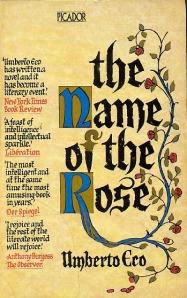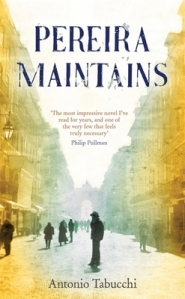by Michael Cunningham
As the author of “Las Horas,” “Die Stunden” and “De Uren” — ostensibly the Spanish, German and Dutch translations of my book “The Hours,» but actually unique works in their own right — I’ve come to understand that all literature is a product of translation. That is, translation is not merely a job assigned to a translator expert in a foreign language, but a long, complex and even profound series of transformations that involve the writer and reader as well. “Translation” as a human act is, like so many human acts, a far more complicated proposition than it may initially seem to be.
Let’s take as an example one of the most famous lines in literature: “Call me Ishmael.” That, as I suspect you know, is the opening sentence of Herman Melville’s “Moby-Dick.” We still recognize that line, after more than 150 years.
Still. “Call me Ishmael.” Three simple words. What’s the big deal?
For one thing, they possess that most fundamental but elusive of all writerly qualities: authority. As writers we must, from our very opening sentence, speak with authority to our readers.
It’s a little like waltzing with a new partner for the first time. Anyone who is able to waltz, or fox-trot, or tango, or perform any sort of dance that requires physical contact with a responsive partner, knows that there is a first moment, on the dance floor, when you assess, automatically, whether the new partner in question can dance at all — and if he or she can in fact dance, how well. You know almost instantly whether you have a novice on your hands, and that if you do, you’ll have to do a fair amount of work just to keep things moving.
Authority is a rather mysterious quality, and it’s almost impossible to parse it for its components. The translator’s first task, then, is to re-render a certain forcefulness that can’t quite be described or explained.
Although the words “Call me Ishmael” have force and confidence, force and confidence alone aren’t enough. “Idiot, read this” has force and confidence too, but is less likely to produce the desired effect. What else do Melville’s words possess that “Idiot, read this” lack?
They have music. Here’s where the job of translation gets more difficult. Language in fiction is made up of equal parts meaning and music. The sentences should have rhythm and cadence, they should engage and delight the inner ear. Ideally, a sentence read aloud, in a foreign language, should still sound like something, even if the listener has no idea what it is he or she is being told.
Let’s try to forget that the words “Call me Ishmael” mean anything, and think about how they sound.
Listen to the vowel sounds: ah, ee, soft i, aa. Four of them, each different, and each a soft, soothing note. Listen too to the way the line is bracketed by consonants. We open with the hard c, hit the l at the end of “call,” and then, in a lovely act of symmetry, hit the l at the end of “Ishmael.” “Call me Arthur” or “Call me Bob” are adequate but not, for musical reasons, as satisfying.
Most readers, of course, wouldn’t be able to tell you that they respond to those three words because they are soothing and symmetrical, but most readers register the fact unconsciously. You could probably say that meaning is the force we employ, and music is the seduction. It is the translator’s job to reproduce the force as well as the music.
“Chiamami Ismaele.”
That is the Italian version of Melville’s line, and the translator has done a nice job. I can tell you, as a reader who doesn’t speak Italian, that those two words do in fact sound like something, independent of their meaning. Although different from the English, we have a new, equally lovely progression of vowel sounds — ee-a, ah, ee, a, ee — and those three m’s, nicely spaced.
If you’re translating “Moby-Dick,” that’s one sentence down, approximately a million more to go.
I encourage the translators of my books to take as much license as they feel that they need. This is not quite the heroic gesture it might seem, because I’ve learned, from working with translators over the years, that the original novel is, in a way, a translation itself. It is not, of course, translated into another language but it is a translation from the images in the author’s mind to that which he is able to put down on paper.
Here’s a secret. Many novelists, if they are pressed and if they are being honest, will admit that the finished book is a rather rough translation of the book they’d intended to write. It’s one of the heartbreaks of writing fiction. You have, for months or years, been walking around with the idea of a novel in your mind, and in your mind it’s transcendent, it’s brilliantly comic and howlingly tragic, it contains everything you know, and everything you can imagine, about human life on the planet earth. It is vast and mysterious and awe-inspiring. It is a cathedral made of fire.
But even if the book in question turns out fairly well, it’s never the book that you’d hoped to write. It’s smaller than the book you’d hoped to write. It is an object, a collection of sentences, and it does not remotely resemble a cathedral made of fire.
It feels, in short, like a rather inept translation of a mythical great work.
The translator, then, is simply moving the book another step along the translation continuum. The translator is translating a translation.
A translator is also translating a work in progress, one that has a beginning, middle and end but is not exactly finished, even though it’s being published. A novel, any novel, if it’s any good, is not only a slightly disappointing translation of the novelist’s grandest intentions, it is also the most finished draft he could come up with before he collapsed from exhaustion. It’s all I can do not to go from bookstore to bookstore with a pen, grabbing my books from the shelves, crossing out certain lines I’ve come to regret and inserting better ones. For many of us, there is not what you could call a “definitive text.”
This brings us to the question of the relationship between writers and their readers, where another act of translation occurs.
I teach writing, and one of the first questions I ask my students every semester is, who are you writing for? The answer, 9 times out of 10, is that they write for themselves. I tell them that I understand — that I go home every night, make an elaborate cake and eat it all by myself. By which I mean that cakes, and books, are meant to be presented to others. And further, that books (unlike cakes) are deep, elaborate interactions between writers and readers, albeit separated by time and space.
I remind them, as well, that no one wants to read their stories. There are a lot of other stories out there, and by now, in the 21st century, there’s been such an accumulation of literature that few of us will live long enough to read all the great stories and novels, never mind the pretty good ones. Not to mention the fact that we, as readers, are busy.
We have large and difficult lives. We have, variously, jobs to do, spouses and children to attend to, errands to run, friends to see; we need to keep up with current events; we have gophers in our gardens; we are taking extension courses in French or wine tasting or art appreciation; we are looking for evidence that our lovers are cheating on us; we are wondering why in the world we agreed to have 40 people over on Saturday night; we are worried about money and global warming; we are TiVo-ing five or six of our favorite TV shows.
What the writer is saying, essentially, is this: Make room in all that for this. Stop what you’re doing and read this. It had better be apparent, from the opening line, that we’re offering readers something worth their while.
I should admit that when I was as young as my students are now, I too thought of myself as writing either for myself, for some ghostly ideal reader, or, at my most grandiose moments, for future generations. My work suffered as a result.
It wasn’t until some years ago, when I was working in a restaurant bar in Laguna Beach, Calif., that I discovered a better method. One of the hostesses was a woman named Helen, who was in her mid-40s at the time and so seemed, to me, to be just slightly younger than the Ancient Mariner. Helen was a lovely, generous woman who had four children and who had been left, abruptly and without warning, by her husband. She had to work. And work and work. She worked in a bakery in the early mornings, typed manuscripts for writers in the afternoons, and seated diners at the restaurant nights.
Helen was an avid reader, and her great joy, at the end of her long, hard days, was to get into bed and read for an hour before she caught the short interlude of sleep that was granted her. She read widely and voraciously. She was, when we met, reading a trashy murder mystery, and I, as only the young and pretentious might do, suggested that she try Dostoyevsky’s “Crime and Punishment,” since she liked detective stories. She read it in less than a week. When she had finished it she told me, “That was wonderful.”
“Thought you’d like it,” I answered.
She added, “Dostoyevsky is much better than Ken Follett.”
“Yep.”
Then she paused. “But he’s not as good as Scott Turow.”
Although I didn’t necessarily agree with her about Dostoyevsky versus Turow, I did like, very much, that Helen had no school-inspired sense of what she was supposed to enjoy more, and what less. She simply needed what any good reader needs: absorption, emotion, momentum and the sense of being transported from the world in which she lived and transplanted into another one.
I began to think of myself as trying to write a book that would matter to Helen. And, I have to tell you, it changed my writing. I’d seen, rather suddenly, that writing is not only an exercise in self-expression, it is also, more important, a gift we as writers are trying to give to readers. Writing a book for Helen, or for someone like Helen, is a manageable goal.
It also helped me to realize that the reader represents the final step in a book’s life of translation.
One of the more remarkable aspects of writing and publishing is that no two readers ever read the same book. We will all feel differently about a movie or a play or a painting or a song, but we have all undeniably seen or heard the same movie, play, painting or song. They are physical entities. A painting by Velázquez is purely and simply itself, as is “Blue” by Joni Mitchell. If you walk into the appropriate gallery in the Prado Museum, or if someone puts a Joni Mitchell disc on, you will see the painting or hear the music. You have no choice.
WRITING, however, does not exist without an active, consenting reader. Writing requires a different level of participation. Words on paper are abstractions, and everyone who reads words on paper brings to them a different set of associations and images. I have vivid mental pictures of Don Quixote, Anna Karenina and Huckleberry Finn, but I feel confident they are not identical to the images carried in the mind of anyone else.
Helen was, clearly, not reading the same “Crime and Punishment” I was. She wasn’t looking for an existential work of genius. She was looking for a good mystery, and she read Dostoyevsky with that thought in mind. I don’t blame her for it. I like to imagine that Dostoyevsky wouldn’t, either.
What the reader is doing, then, is translating the words on the pages into his or her own private, imaginary lexicon, according to his or her interests and needs and levels of comprehension.
Here, then, is the full process of translation. At one point we have a writer in a room, struggling to approximate the impossible vision that hovers over his head. He finishes it, with misgivings. Some time later we have a translator struggling to approximate the vision, not to mention the particulars of language and voice, of the text that lies before him. He does the best he can, but is never satisfied. And then, finally, we have the reader. The reader is the least tortured of this trio, but the reader too may very well feel that he is missing something in the book, that through sheer ineptitude he is failing to be a proper vessel for the book’s overarching vision.
I don’t mean to suggest that writer, translator and reader are all engaged in a mass exercise in disappointment. How depressing would that be? And untrue.
And still. We, as a species, are always looking for cathedrals made of fire, and part of the thrill of reading a great book is the promise of another yet to come, a book that may move us even more deeply, raise us even higher. One of the consolations of writing books is the seemingly unquenchable conviction that the next book will be better, will be bigger and bolder and more comprehensive and truer to the lives we live. We exist in a condition of hope, we love the beauty and truth that come to us, and we do our best to tamp down our doubts and disappointments.
We are on a quest, and are not discouraged by our collective suspicion that the perfection we look for in art is about as likely to turn up as is the Holy Grail. That is one of the reasons we, I mean we humans, are not only the creators, translators and consumers of literature, but also its subjects.
Michael Cunningham is the author of “The Hours” and, most recently, “By Nightfall”.
Πηγή: The New York Times 2/10/2010






